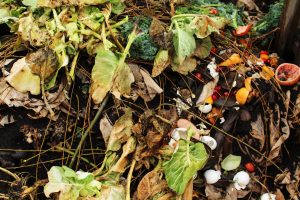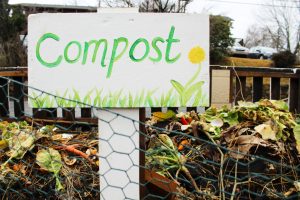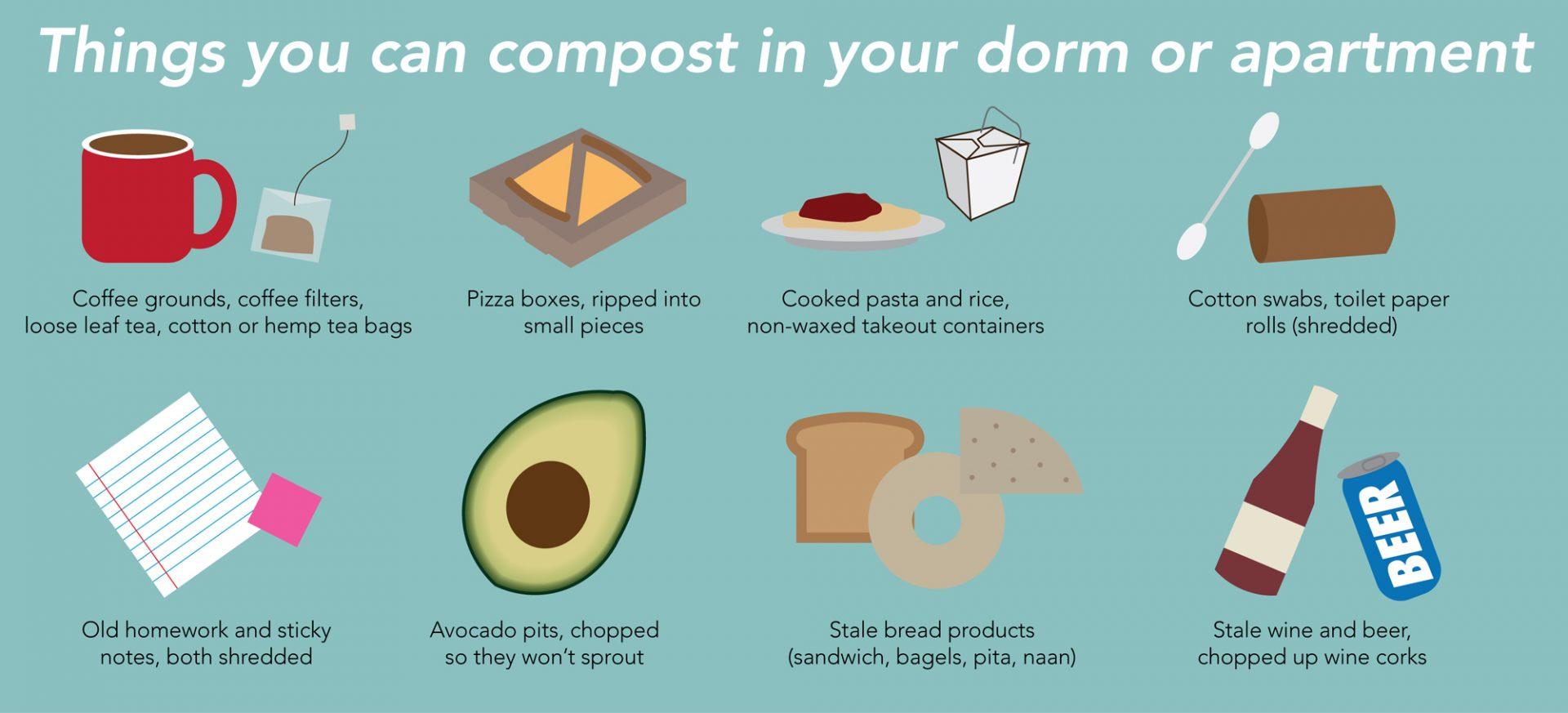Student involvement has been the catalyst for Appalachian State University to become what many now refer to as a sustainability campus. Over the years, it has become evident just how important sustainable practices are for those who attend school here.
“We did a survey and found that 55 percent of incoming students chose Appalachian simply because of sustainability,” Sustainability Program Manager Jennifer
Maxwell said.
Beyond simply recycling, one effort by students in making App State a greener campus comes from composting. What originally started out as a single compost bin at the center of campus in 1999, has grown to include all dining halls, Frank Hall, Belk Hall and now the Living Learning Center.
Frank Hall houses its own Residential Learning Community, known as Living Green, which educates students about living a sustainable lifestyle. Living Green is for students who are interested in sustainability and would like to support this cause by being involved with an environmentally and socially responsible community.
Eco-rep for Frank and Belk halls and freshman biology major Thanh Schado is also involved in Living Green.
“The overall goal is to lower the amount of trash that you produce every day,” Schado said. “It’s the small things that make a change that you want to show other people, which will usually create a domino effect.”

Only a minority of residence halls currently house composting bins, but students can expect to see them more frequently in the future. The Office of Sustainability’s push for more composting around campus could include not only the residence halls but also academic buildings.
Appalachian State also maintains a “zero-waste policy,” another effort to help limit the trash and waste that is put back into the environment. The idea of this policy is to refrain from using anything that will not be given back to the earth.
“Our zero-waste policy is pushing to produce as little waste as possible, such as using reusable water bottles and lunch containers,” Schado said. “The whole idea is this concept where you limit your byproduct.”
Maxwell said the geographic location of Appalachian State has also created a long-standing practice of preserving the nature of the mountains.
“There’s something about the natural environment here and that creation of sense of place has historically brought students here that are more sustainably-minded,” Maxwell said.
The Sustainable Development Teaching and Research Farm in Ashe County and the university compost facility, maintained by the Physical Plant, have also helped with the composting process.
Once the compost is collected around campus, it is brought to the facility, which is located on State Farm Road. The plant is able to turn 275 tons of campus food waste into organic compost. The process of composting itself, however, is long and complicated.

Food waste from the dining halls and residence halls are collected and driven to Appalachian’s compost facility before it is added to the compost bin. It is then mixed with wood and sawdust before it “cooks” by maintaining a temperature of 131 degrees F for 3 days and then 104 degrees F for the following 11 days.
“The Department of Environmental Quality will oversee the process because we have to meet certain standards with the heat that the compost goes through to kill all the pathogens,” Compost Facility Coordinator John Richards said. “It’s simple, but it’s also very scientific.”
Most of the compost generated through the dining and residence halls usually return to campus or other off-campus locations that are focused on a greener way of life. This helps keep the compost more local.
“We take a lot of the compost to App State’s sustainability farm in Ashe County,” Richards said. “However, we are trying to use it on campus a majority of the time.”
Because research and sustainability have become ingrained in Appalachian State’s culture, the university put together a strategic plan for the 2014-2019 academic years, titled “The Appalachian Experience: Envisioning a Just and Sustainable Future.”
The plan states, “Sustainability at Appalachian State University is not a trend, it is a tradition. We are active stewards of our State’s interconnected financial, cultural and natural resources. Through engaged scholarship, we balance critical, creative and global thinking in a living laboratory, transforming theory into practice and fostering responsible citizenship.”
The Office of Sustainability hopes to spread more awareness of the importance of preserving Appalachia by spreading composting bins around campus to include residence halls and academic buildings.
Story by: Gianna Holiday, Intern Reporter
Graphic by: Nora Smith, Graphics Editor
Photos by: Mickey Hutchings, Staff Photographer


